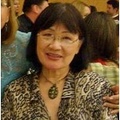En la vida actual, según Patricio Alwyn - ex presidente de Chile y estudioso de los problemas sociales de la América Latina - prevalece la cultura materialista y economicista en que “el tener vale más que ser” y las personas se convierten en esclavas de las cosas y, por consiguiente, del consumismo y la competitividad dentro de la sociedad. La preocupación por la propia vida solamente, la adquisición de bienes y el privilegio del poder parecieran ser la finalidad de la existencia humana. Este problema atañe a la mayoría de la población del planeta y sobre todo en la América Latina, donde vivimos, en que la desigualdad social crece de una manera abismal.
Al respecto, Michel Camdessus manifiesta la necesidad de introducir los valores de la justicia y solidaridad en el funcionamiento de la vida económica, sobre todo la solidaridad como actitud moral y social de aceptación e interdependencia entre los hombres y entre las naciones en la búsqueda del bien común.
Con relación a las líneas anteriores, es atinado presentar un caso en la República del Paraguay. Desde el año 1996 viene funcionando en la ciudad de Fernando de la Mora, cercana a la capital paraguaya, el Centro Social de Beneficencia Japonesa en el Paraguay, que fuera construido por iniciativa del filántropo japonés Hisakazu Kasamatsu, y financiada por la Fundación Ryoichi Jinnai del Japón y las principales entidades del país, para ofrecer sobre todo a los japoneses y nikkei un lugar de refugio. Asimismo, para promover una actitud solidaria, haciendo obras de beneficencia y respondiendo a la problemática universal en la búsqueda del bien común entre los japoneses y nikkei del Paraguay, sobre todo para la ancianidad.
Desde el año 2006 me hice cargo de la presidencia del Centro o Fukushi Center, en donde a través de la Dirección ejecutiva y administrativa se ofrecen diversas actividades de recreación y charlas dirigidas por voluntarias de JICA (Agencia de Cooperación Internacional del Japón) y de señoras de nuestro medio, además de otros servicios tales como la práctica de deportes, la rehabilitación y ejercicios para que la ancianidad sea mas llevadera y, al mismo tiempo, se promociona la idea general de una ancianidad feliz y saludable.
El Fukushi Center ofrece, igualmente, pensionado, cuidado de la salud y atención médica con los más renombrados médicos nikkei del país y con los equipos más modernos para la atención de los pacientes, con un precio muy accesible para los nikkei y también para los paraguayos de escasos recursos que viven en los alrededores del centro. El centro cuenta también con salones multiusos para los diversos acontecimientos sociales y festivos de la comunidad, incluyendo también los funerales. Entre sus obras benéficas, ha albergado a varios japoneses “homeless” en un total de 10 personas. El Fukushi Center cuenta con un predio de 6.175 m2 con y una construcción en tres pisos de 1.650 m2.
En el año 2001, las Naciones Unidas instauró tal momento como el “Año Internacional del Voluntariado”. Al respecto, hubo manifestaciones en todo el mundo y en el Paraguay se creó el Consejo Nacional de Voluntariado, el cual tuve el honor de presidir contando con el apoyo de los paraguayos; pero, lastimosamente, hubo muy poco interés entre los nikkei y japoneses del Paraguay por el trabajo del voluntariado.
Recién en el año 2007 a iniciativa de la Agencia de Cooperación Internacional del Japón (JICA), las dos mas grandes entidades japonesas del Paraguay que son: el Centro Social de Beneficencia Japonesa en el Paraguay “Fukushi Center” y la Federación de Asociaciones Japonesas en el Paraguay o “Rengookai” han convenido en fundar una nueva entidad con el apoyo de la JICA, bajo el nombre de “Comisión de apoyo a la Tercera Edad de los Japoneses del Paraguay” en el mes de diciembre de ese ano. Está dirigido al apoyo de los ancianos que viven en la capital y en las colonias japonesas, y que suman un total de 952 personas, es decir, 13% de la población total nikkei.
Un nuevo despertar surge entre los japoneses y nikkei en cuanto al sentimiento solidario y al voluntariado, a través de capacitaciones y orientaciones en todas las colonias y hacia la conducción de un ideal fundamental de servicio desinteresado para todos aquellos que llegan y que llegarán en algún momento de la vida a la ancianidad y esta debe ser feliz y saludable.
Referencia:
Bernardo Kliksberg .Etica y Desarrollo, la relación marginada. Editorial El Ateneo, 2002
© 2010 Emi Kasamatsu




